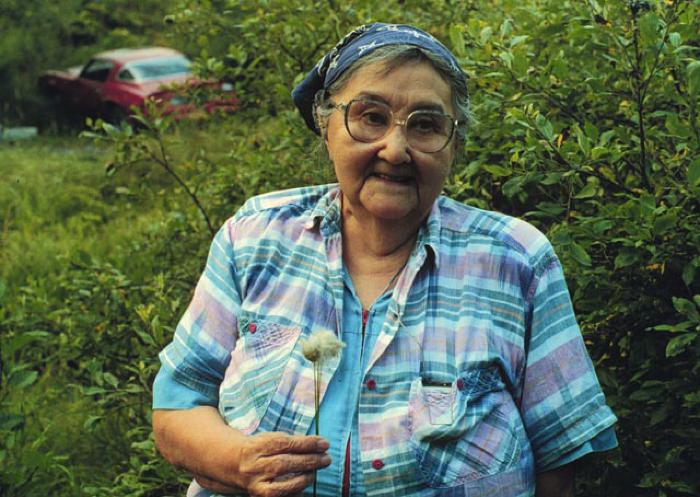Elder — Cuqlliq

The world’s cultures respond to aging in very different ways. Some societies believe that the aged have less to contribute than the young, considering the elderly a social burden. But in Alutiiq society, older people hold a distinguished, highly respected place. The term Elder refers to their special role. Elders are culture bearers, social leaders, and beloved members of the Alutiiq community. Through their lifetime of experiences and their knowledge of generations past, they connect younger people with Alutiiq history not written in books. Their stories, dances, songs, and activities pass Alutiiq heritage forward and infuse youth with traditional values. In a rapidly changing world, Elders help others remember what it means to be Alutiiq and to take pride in this ancestry.
Today, many Elders participate in cultural programs designed to preserve and share Alutiiq traditions. They teach the Alutiiq language in schools, demonstrate traditional crafts at summer camps, teach songs and dances during Alutiiq Week celebrations, and help to celebrate community events. They are also important advisors, helping others to make decisions that serve Native people and maintain traditional values. When does someone become an Elder? Some say it is at the age of fifty. However, the transformation is usually gradual, occurring as a person gains respect for their knowledge, demonstrates a willingness to share wisdom, and leads by example.
